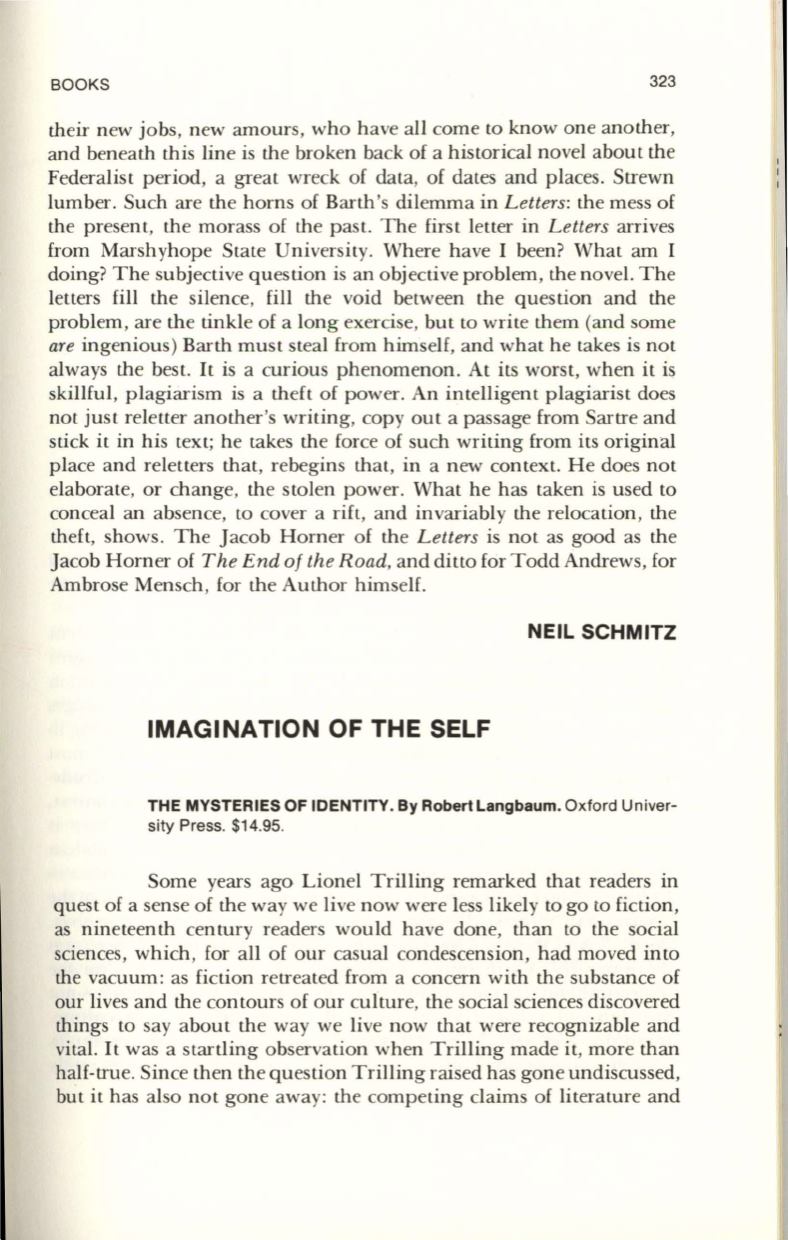
BOOKS
323
their new jobs, new amours, who have all come to know one another,
and beneath this line is the broken back of a historical novel about the
Federalist period, a great wreck of data, of dates and places. Strewn
lumber. Such are the horns of Barth's dilemma in
Letters:
the mess of
the present, the morass of the past. The first letter in
Letters
arrives
from Marshyhope State University. Where have I been? What am I
doing? The subjective question is an objective problem, the novel. The
letters fi ll the silence, fill the void between the question and the
problem, are the tinkle of a long exercise, but to write them (and some
are
ingenious) Barth must steal from himself, and what he takes is not
always the best. It is a curious phenomenon. At its worst, when it is
skillful, plagiarism is a theft of power. An intelligent plagiarist does
not just reletter another's writing, copy out a passage from Sartre and
stick it in his text; he takes the force of such writing from its original
place and reletters that, rebegins that, in a new context. He does not
elaborate, or change, the stolen power. What he has taken is used to
conceal an absence, to cover a rift, and invariably the relocation, the
theft, shows. The Jacob Horner of the
Letters
is not as good as the
Jacob Horner of
The End of the Road,
and ditto for Todd Andrews, for
Ambrose Mensch, for the Author himself.
NEIL SCHMITZ
IMAGI NATION OF THE SELF
THE MYSTERIES OF IDENTITY. By Robert Langbaum.
Oxford Univer–
sity Press. $14.95.
Some years ago Lione l Trilling remarked that readers in
quest of a sense of the way we live now were less likely to go to fiction,
as nineteenth century readers would have done, than to the social
sciences, which, for all of our casual condescension, had moved into
the vacuum: as fiction retreated from a concern with the substance of
our lives and the contours of our culture, the social sciences discovered
things to say about the way we live now that were recognizable and
vital. It was a startling observation when Trilling made it, more than
half-true. Since then the question Trilling raised has gone undiscussed,
but it has also not gone away: the competing claims of literature and


